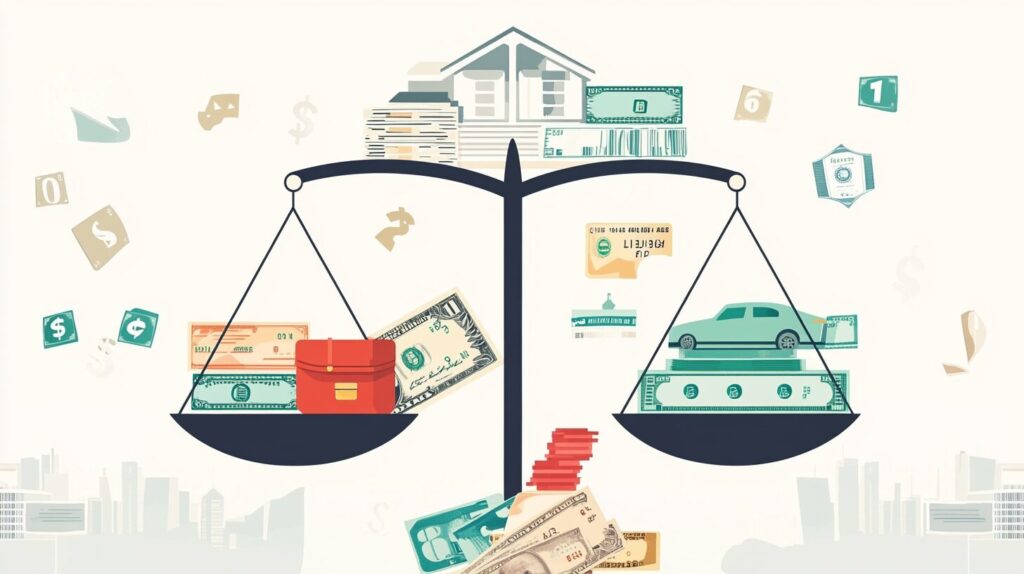Capital in economics is a fundamental concept that plays a critical role in any economy’s operations. It encompasses various forms of resources, from financial assets to physical goods, which are utilized to generate wealth and drive economic growth.
Definition, Meaning, and Example of Capital in Economics
In economics, capital refers to the assets used to produce any goods and services. These assets can be physical, financial, human, or intangible, and they are critical for generating economic value. Capital and land, labor, and entrepreneurship are among the four primary production factors.
Capital is essential for production because it provides the tools, infrastructure, and resources that enable businesses to produce goods and services efficiently. It is not consumed immediately in the production process but rather used over time to generate income and wealth. For instance, a factory equipped with advanced machinery represents physical capital, enabling higher productivity and efficiency.
How Capital in Economics Works
Capital functions as a critical input in the production process. Businesses invest in capital to enhance their production capabilities, improve efficiency, and generate more output. For example, a company might purchase new technology to streamline its manufacturing process, thereby increasing its competitive edge in the market. The efficient use of capital leads to economic growth and higher living standards.
Types of Capital in Economics
Physical Capital: This includes machinery, buildings, vehicles, and tools used in production. For instance, a factory with advanced manufacturing equipment can produce goods more efficiently than one with outdated machinery.
Human Capital: Skills, knowledge, and expertise possessed by workers. An example is a software engineer’s programming skills, which contribute to developing software products.
Financial Capital: Funds available for investment, such as money, stocks, and bonds. A company might use financial capital to invest in new technologies or expand its operations.
Intangible Capital: Non-physical assets like patents, trademarks, and intellectual property. For example, a company’s brand reputation is a form of intangible capital that can attract customers and generate sales.
What are the Characteristics of Capital in Economics?
Durability: Capital assets are typically long-lasting and can be used repeatedly over time. For example, a piece of manufacturing equipment can be used for several years to produce goods before it needs to be replaced.
Mobility: Certain forms of capital, such as financial capital, can be easily transferred and utilized in different locations. However, some physical capital, like buildings, may have limited mobility.
Productivity: Capital enhances the productivity of labor and other inputs. For instance, a construction company using modern machinery can complete projects more efficiently and much faster than one relying on manual labor alone.
Depreciation: Capital assets tend to lose value over time because of wear and tear, obsolescence, or other factors. Depreciation must be accounted for in financial records to reflect this declining value.
Accumulation: Capital can be accumulated through savings and investments. Businesses and individuals save a portion of their income and invest it in various forms of capital to generate future returns.
Capital Intensity: The extent to which production processes rely on capital can vary. Industries with high capital intensity, like manufacturing, require significant investments in machinery and equipment, whereas service-oriented industries may rely more on human capital.
Why is Capital in Economics Important?
Capital is vital for economic growth as it enables increased production, innovation, and efficiency. Economies can expand their productive capacities by investing in capital, leading to higher incomes and improved living standards. Moreover, capital investment is essential for technological advancements, which drive long-term economic progress.
Advantages and Disadvantages of Capital in Economics
Advantages:
- Enhanced Production Capabilities: Capital investments in technology and equipment can significantly boost production efficiency and output. For example, consider automation in manufacturing which can result in higher production rates and lower costs.
- Economic Growth and Development: Increased capital investment drives economic growth by expanding productive capacity, creating jobs, and fostering innovation. For instance, investments in infrastructure like roads and bridges improve connectivity and support commerce.
- Increased Efficiency and Competitiveness: Businesses that invest in modern capital can operate more efficiently and compete more effectively in the market. For example, a company with state-of-the-art logistics systems can deliver products much faster at lower costs.
Disadvantages:
- High Initial Investment: Acquiring capital assets often requires substantial upfront expenditure. Small businesses or startups might find it challenging to gather the necessary funds for such investments.
- Depreciation and Obsolescence: Over time, capital assets depreciate and may become obsolete due to technological advancements. This necessitates ongoing investment to replace or upgrade outdated assets, which can be costly.
- Inequality: Uneven distribution of capital can lead to economic inequality. Individuals or businesses with more capital have greater opportunities for growth and wealth accumulation, potentially widening the gap between the rich and the poor.
- Risk of Overinvestment: Excessive capital investment can lead to overcapacity, where the production capabilities exceed market demand. This can lead to wasted resources and financial losses for businesses.
How to Record Capital in Economics?
Recording capital involves tracking the value and depreciation of assets over time. Businesses typically use accounting methods such as cost or revaluation to record capital. This ensures accurate financial statements and helps in making informed investment decisions.




